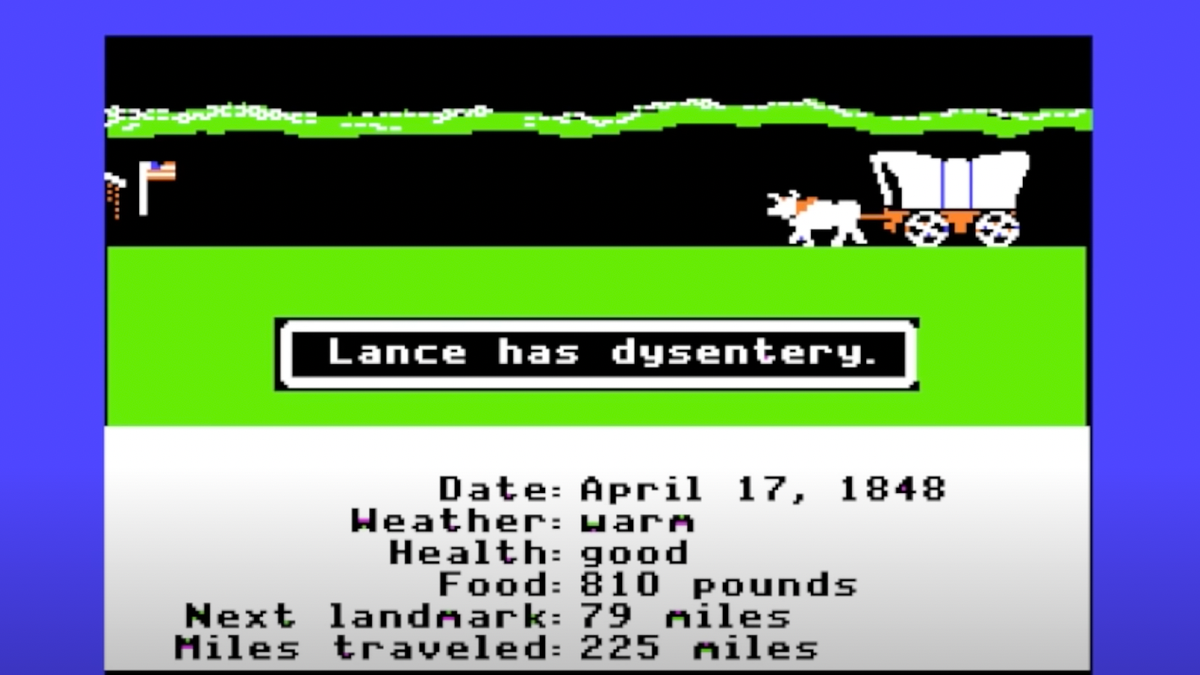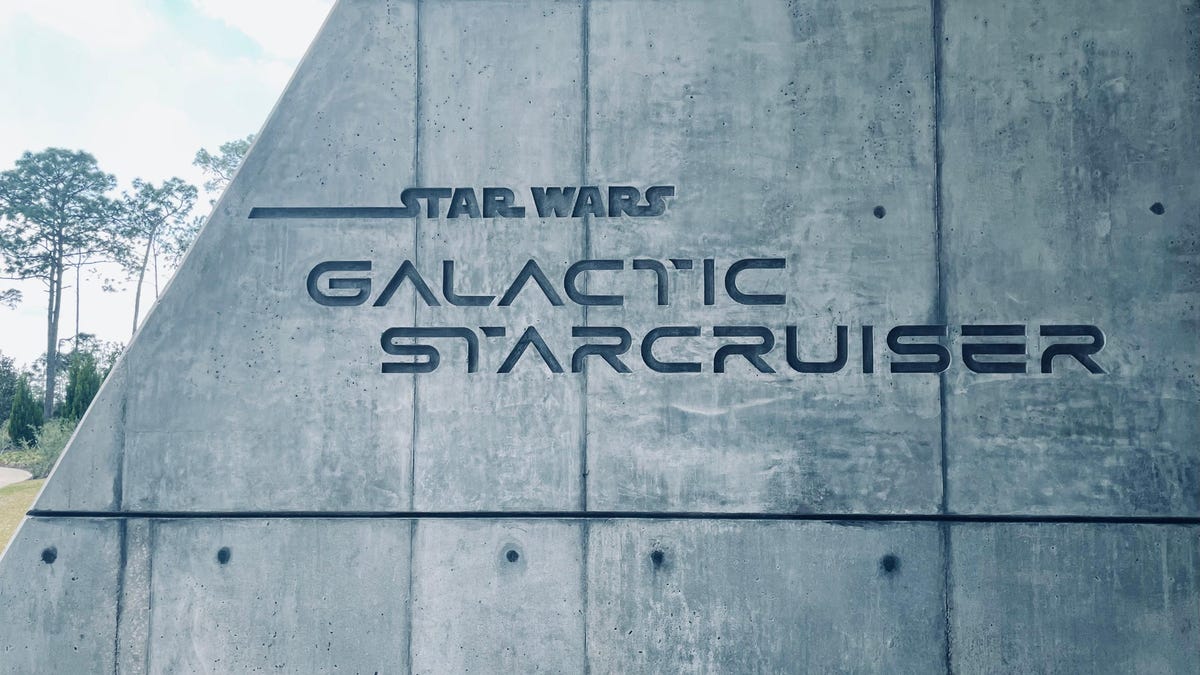11 Educational Video Games That Are Actually Fun
When I was a kid, I didn’t like any toys, games, books, or TV shows that tried to “make learning fun.” I wasn’t dumb; I knew when I was being lied to—learning and fun are mutually exclusive. But occasionally,...


When I was a kid, I didn’t like any toys, games, books, or TV shows that tried to “make learning fun.” I wasn’t dumb; I knew when I was being lied to—learning and fun are mutually exclusive. But occasionally, rarely, an educational video game comes out that is actually fun, or a fun video game comes out that’s actually educational. The 11 games below are my personal picks for the GOATs in that rarified genre.
2 / 13
The Oregon Trail series (1971-2023)
The Oregon Trail series (1971-2023)
The original Oregon Trail video game was developed in 1971, and the latest version came out on the Nintendo Switch this week, so you could say that the series has legs. Designed to teach schoolchildren about 19th Century America’s westward expansion, The Oregon Trail puts you in charge of a covered wagon traveling from Independence, Missouri, to Oregon City, Oregon in 1847. While each new iterations of the game (and there are dozens) adds complexity to the original in various ways, the basic game remains: Players manage settlers’ resources, keep them safe, find them food, and hope that everyone doesn’t die of dysentery along the way.
Platforms: Too many to list
3 / 13
The Typing of the Dead (2000)
The Typing of the Dead (2000)
Learning how to type is boring—unless you add zombies! The bat-crap crazy concept of typing words quickly to prevent undead ghouls from eating your brains doesn’t make logical sense, but it works as a game, and it definitely inspires you to type very quickly. The first iteration of The Typing of the Dead was released in Japanese arcades(!) in 1999, and for PC and Sega Dreamcast in the US in 2001. The Typing of the Dead teaches a specific, useful, reflex-based skill through repetition, and that kind of instant eye-hand-coordination is what video games are best at instilling. You can’t argue with high WPM typing skills.
Platforms: Dreamcast, Arcade game, Microsoft Windows, PlayStation 2
4 / 13
Civilization series (1991-2016)
Civilization series (1991-2016)
Turn based strategy games are a great way to learn about logical thinking and tactics, and when they’re based on history like Civilization, you get the added bonus of learning all about famous leaders, world history, and many cultures and empires you can overrun and destroy. The fact that you can take as long as you like to make moves adds to the educational value because, unlike most games, you have some time to think.
Platforms: Too many to list
This War of Mine (2014)
Not many educational games teach a moral lesson, but This War of Mine is an exception. It’s a counter-point to games like Call of Duty that glorify armed conflict. This is the opposite of an “ain’t war fun?” game. Instead of a heavily gunned-up and armored super-soldier, This War of Mine casts players as helpless civilians trapped in an urban war zone. Instead of exciting adventures and vanquishing enemies, you’ll be rooting through burned-out house looking for a tin of beans so you don’t starve to death. It’s grim, but the resource-gathering and stealth (some people guard their food) are actually fun, in a dark way.
Platforms: Android, Nintendo Switch, PlayStation 4, iOS, Xbox One.
Cities: Skylines (2015)
Of all the video games I’ve ever played (and I’ve played a lot of video games) I learned the most from Cities: Skylines. It changed the way I understand how modern civilization works. This urban planning game is like Sim City but way, way more complex and fun. To create viable cities, you’ll have to learn how systems like transportation, zoning, industry, sanitation, and law enforcement work, and you’ll also have to learn how they work together to balance competing interests into a harmonious urban whole. Once you’ve done that, you can send a huge asteroid into the center of the city and watch it all burn down.
Platforms: Microsoft Windows, MacOS, Linux, Xbox One, PlayStation 4, Nintendo Switch, Google Stadia
Minecraft (2011)
Minecraft is more of a lifestyle than a video game at this point, but it’s educational as hell. At its most basic level, the game educates players about the nocturnal habits of imaginary skeletons and basic problem-solving, but Minecraft is deep. When you dig into the game (because you’re mining; get it?) you can learn a ton. The game’s redstone system is based on electrical engineering, so it requires understanding how circuits work and power machines. You can combine the relatively simple redstone components into limitless complex creations that do just about anything. On an even deeper level, Minecraft modding can teach the coding necessary to alter the game itself.
Platforms: Basically everything.
Rocksmith (2011)
Playing guitar is super fun. Learning guitar is super boring. Rocksmith tries to bridge the gap by letting you plug your own guitar into your game system or PC to play a Guitar Hero style game where you score points by actually learning chords and riffs. It’s as challenging and addictive as any rhythm game, but you come away from it knowing how to rock out in real life, at least a little. It’s not a replacement for actual music instruction, but it’s a great addition and a great incentive to practice.
Platforms: Android, iOS, Microsoft Windows, PlayStation 4, PlayStation 5, Xbox One, Xbox Series X and Series S
DuoLingo (2011)
Not everyone would call DuoLingo a game, but the language learning application is so heavily gamified, it at least blurs the boundaries. With over half a billion registered users and 40 million monthly users, it’s obviously working. DuoLingo is serious about games. The app applies the “The Octalysis framework” to languages—using basic human motivators to build an engaging, rewarding experience for users. Experience points, competition, progress bars, digital currency, and so many other “straight-from-video-games” elements are crammed into learning to speak Spanish (or Klingon, if you prefer) that it actually is fun.
Nintendo Labo (2018)
If you have a kid who likes building things, check out Labo. It presents users with really cool cardboard construction projects, and when you’re finished building them, they work as specialized game-controllers for Nintendo Switch mini-games. You can make a cardboard camera, fishing pole, and (of course) a gun, but I was particularly impressed with the synthesizer/keyboard build that lets you cut sound waves of your choice out of cardboard that the Switch then converts into musical tones.
Platforms: Nintendo Switch
11 / 13
Where in the World is Carmen Sandiego series (1985-2019)
Where in the World is Carmen Sandiego series (1985-2019)
The original Where in the World is Carmen Sandiego was released in 1985, and it spawned over 20 sequels that go beyond geography to teach math, history, and other subjects via web games, two different television gameshows, and an animated series. All that and we still don’t know where she is. The series’ breezy charm and straight-ahead gameplay are the magical combination that has charmed multiple generations of kids.
Platforms: Too many to list
12 / 13
Kerbal Space Program (2015)
Kerbal Space Program (2015)
If you have a kid who’s even a little interested in space or rockets, Kerbal Space Program is the game for you. It puts you in command of a space program and lets you build rockets to orbit the planet, reach the moon, and explore other worlds—if you can work out the complicated logistics of space travel, of course. Your kid will probably start with the anarchistic fun of building improbably powerful death rockets that inevitably explode on the landing pad, and progresses until they’re launching working missions to other planets. Along the way, they’ll learn all about gravity, telemetry, orbits, thrust, power, etc. without being aware that they’re becoming a rocket scientist.
Platforms: PlayStation 5, PlayStation 4, Microsoft Windows, MacOS, Xbox Series S and Series X, Wii U

 KickT
KickT 
































